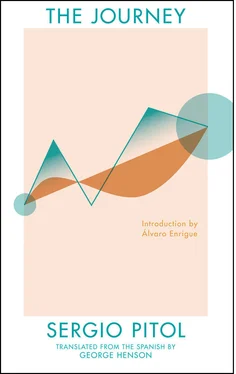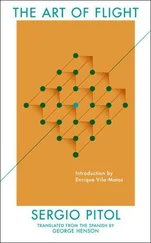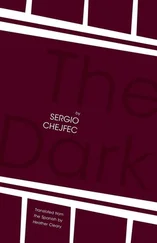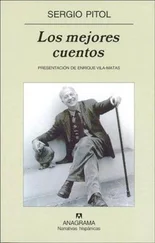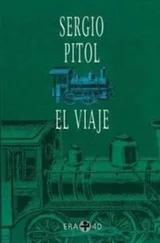Back to yesterday. I arrived at the hotel very tipsy thanks to the barrels of red wine I ingested. The spectacle left me quite disturbed. It was, above all, a blow to modesty. Since childhood I have shuddered at seeing such bodily activities. I have spent my entire life avoiding them. Witnessing such an unexpected excremental jamboree rattled me. More than the stench, what really upset me was the ease with which these functions were performed. I imagine that the writer who had been plagued by the insatiable rut of females from the West offered to accompany me to the toilet to reduce the effect had I entered the place alone. We left the restaurant, walked down the street stairs that led to the river, and before reaching the embankment we entered a small door. It seems that there wasn’t even a sign on the outside, although I’m not sure. The truth is that it was not a secret place, quite the opposite! As soon as I crossed the threshold, I felt a strong blow to my stomach, lightheadedness, a repulsive gust of putrid air. We went down yet another flight of stairs to reach a vast space. By the din that was heard, the locale must have been very crowded. Perhaps the city’s central latrine. The light was very low. At one point I could glimpse through the fetid mist a long row of men of all ages, sitting on a never-ending bench. It was a collective latrine, something I would never have imagined existed, outside correctional facilities, if even there. A few were trying to read the paper, others were talking or debating. My companion said that it was a soccer game day, that’s why there was so much hubbub. He turned to greet someone. On the other side of the giant room a metal canal ran from wall to wall: the urinal, toward which I headed. There was no collective shame. Belly laughs could be heard intermingled with belly noises. The cavernous stench was unbearable. I was afraid that I was going to faint. I looked for that insane pockmarked Virgil that had led me to that fecal circle of hell to ask him to get me out of there immediately, and I saw him happy, as if he had arrived at the agora at the zenithal moment, chatting happily with some boys and greeting others while he unbuttoned his pants and headed to one of the holes to defecate. I left as best I could, I got to the restaurant, I asked the guide to take me in a taxi to the hotel and fell in the bed like a log. I awoke, as I said, I think, queasy, bathed, and changed clothes, as the scenes I had witnessed danced in my head like a vague and distant memory, isolated fragments of a nightmare. I decided not to be dramatic about it. The aspirin had already taken its effect. I drank a couple of espressos in the hotel and started to walk along the Rustaveli, the city’s main avenue. I arrived at the theater of the same name, and remembered the fabulous representation of Richard III by Shakespeare that the company from the theater had performed at the Cervantes Festival about three or four years ago. A production that had a bit of more radical German Expressionism, with popular marionettes, very colorful, with very marked features, gestures, and movements. The theater is surrounded by a wooded park. I walked along a path. Spring was at its best. The trees were beginning to bloom and the aroma was wonderful, the scent of…I was going to say peach, I think, but suddenly to my astonishment, I open my mouth and say aloud: “ Sal mojón / de tu rincón / hazme el milagro / niño cagón .” 20I repeated this refrain two or three times, and caught a glimpse of a courtyard, next to a staircase, or in its landing, with big pots of white hydrangea, sitting on a little chamber pot, my pants around my ankles, and a servant girl, still almost a child herself, who was repeating these verses over and over again, teaching me to defecate in that specific place and not in my clothes. It must be the earliest memory, or one of the two most distant I’ve been able to rescue from my memory. How old could I have been? Three, at most four. I recited it again. I was in Puebla, at my aunt and uncle’s house, where we lived for a while. Everything was neat, transparent — I was surrounded by happiness. My mother must have been somewhere upstairs in one of the rooms, and my tía Querubina and my cousins Olga and Lilia, who were almost the same age as my mother, and my father was probably still alive; everything was joy, yes, but mostly it was emptying my bowels at that moment and repeating the words the girl is teaching me and hitting my thighs with my fists to the rhythm of the words, and mamá is surely waiting for me and will hug me as soon as she sees me in the doorway, she will sit me on her lap, kiss me because the girl will tell her that I had already gone on the potty. “Cannot bear very much reality. / Time past and time future / What might have been and what has been / Point to one end, which is always present.” 21A happiness embraced me in that park that surrounded the Rustaveli Theatre, and I emerged from the spell and noticed that such a memory would not have been revealed if not for the shock suffered hours ago. I left the park, I paused in front of the theater to see the programs of the month and the photos of the new productions, and later I arrived at the hotel and had another coffee and toast and went back to my room and remembered the woman who attended my lecture on The Mangy Parrot by Fernandez de Lizardi at the Library of Foreign Languages in Moscow, who told me about the anthropological studies of her husband, of the festivals of spring where they worship a niño cagón , a shitting child, or something like that, and I then established a comparison between that woman and another one I saw many years ago in a restaurant in Istanbul, who suddenly began to sing “Ramona,” the song from the twenties interpreted by Dolores del Río, and their faces overlapped, and I knew then I was about to write a novel that would bring all this together when I arrived in Prague.
Today, during the day, I have seen splendid corners of Tbilisi, I left town, I have seen wonders, I have spoken with interesting people, eaten delicious food, drunk wines as dark as dreams, and dreamt visions of drunkenness. My approach to all these activities is real, but there also lives in me the project of the novel of the lower bodily stratum. I long to get to Prague, to the shelf where Bakhtin’s book on the carnival and functions of the lower bowel in the popular culture of the late Middle Ages and early Renaissance is located. The woman from the library and the Turkish woman who sang at the café in Istanbul will be the same person, a woman from the Caucasus: a Georgian or an Armenian. Perhaps the narrator comes to Tbilisi, or to the sophisticated Georgian spas on the Black Sea, Sukhumi or Batumi, and visits this woman who cares for her husband’s papers as if they were a treasure. There should be some ambiguity as to the character of the anthropologist; he could be a genius or a charlatan, that ambiguity that always exists when widows speak of their dead husbands: they are capable of exalting impressive nincompoops, because doing so gives them importance, fame, status, they know that the world is convinced that behind every great man is a great woman, and over time they force the process along, by constructing a virtual edifice they speak of how the main idea arose, which made the deceased famous, and they modestly suggest that it came from a marital conversation, or from something she once said, a sudden moment of truth she had in the kitchen or bathroom, or in the park, perhaps it was a triple moment of truth and when she spoke of it with her husband, a light bulb came on in his brain and he began to work in that particular direction, which she pointed to, and at the very end, in old age, after many years of widowhood, she regretted having married a man who was good and generous, but was also limited, mediocre most of all, because what little he did was thanks to her, yes, of course, but if he had had talent, if he had come to understand what she was, by at least attempting to understand her, he would have become an Einstein, a Nietzsche, a Borges. Anyway, it would be interesting to investigate what was really the impression this female character I’m thinking about had of her husband: her name will be Marietta, Marietta Karapetian. And I know she must have a foil, an enemy, perhaps secret, throughout her life. And the central part of the novel will be about her trip to the Mexican jungles with her husband and the celebration of spring with a fecal feast in which an infant participates as the final character. And in the story’s plot, in the language’s substratum will be, of course, a snapshot of the latrine in Tbilisi, but without ever mentioning it in the novel. Someone, her husband, or perhaps her foil or several of their friends, will refer to her as the la Divina Garza, the Divine Heron. 22
Читать дальше
